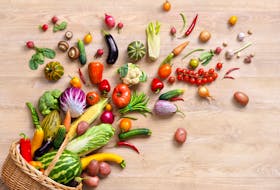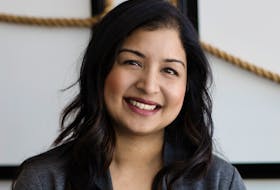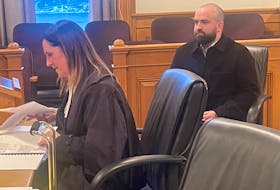As COVID-19 is expected to drag on for months, many people are spending more time at home and less time driving, but cars sitting idle are a recipe for battery and brake problems.
Lorne King, automotive service technician instructor at the College of the North Atlantic, offers some tips for people who will be driving their cars less often, or not at all.
“If somebody’s going to be using it once a week, or once every two weeks, I would recommend just make sure you get a nice drive in — maybe 10 or 15 minutes each time. So, instead of just starting in your driveway, and driving to the grocery store one minute away and coming back, maybe take a loop around the neighbourhood, make sure your car gets fully warmed up for 10 or 15 minutes.
“If you do a lot of starts and short drives, you tend to run your battery down. So, by driving it the extra 10 or 15 minutes around town you’ll give the alternator a chance to charge up the battery.”
King said this will ensure the battery lasts longer, and rust doesn’t build up on the brakes.
However, if a car will be parked for a month or two, King said, ideally, it should still be taken for a drive once a week.
If that’s not possible, he recommends checking to ensure the tire air pressure is OK, checking and topping up fluids, and installing a trickle charger on the battery. These can be purchased at places like Canadian Tire or Wal-Mart, he said, and will ensure the battery doesn’t die.
Vehicles that will be parked for six months or more require more pre-emptive maintenance before they’re stored, including topping up the gas, adding fuel stabilizer and changing the oil.

Studded tire season extended
On Thursday, Service NL announced an extension to studded tire season. The deadline to have studded tires removed is now May 31 instead of April 30.
However, King suggests people book their tire changeover appointments before storing cars for any length of time to ensure the deadline isn’t missed while it’s sitting idle.
And while it’s not a mechanical matter, King said he’s seen a lot of people be mindful of sanitizing their hands after a grocery store visit, but not disinfecting touch points in their cars.
“They’ll go out to a store, touch everything in the store, and open the door with their elbow, then they’ll come out and touch the door handle, the steering wheel, and the shift knob. Then they’ll sanitize their hands and put their hands back on the dirty steering wheel and door handle.”
He recommends keeping disinfectant wipes or something similar in cars to clean those high-touch areas and avoid transmitting the virus.
Insurance relief
On Wednesday, the Insurance Bureau of Canada (IBC) announced insurance relief for people whose driving habits have changed significantly now that they might be working from home, laid off or socially isolating.
Some IBC member companies are now offering reductions in auto insurance premiums to reflect the reduced risk, and the bureau expects it could save Canadians $600 million.
“This is an incredibly challenging and uncertain time for many Canadians, and insurers want to help alleviate some of the financial burden for the most vulnerable. Insurers understand that many drivers are no longer commuting or using their vehicle as regularly, which could result in savings,” said Don Forgeron, IBC president and CEO.
IBC recommends anyone whose driving habits have changed significantly, or who are facing financial hardship as a result of the pandemic, to contact their insurance representative.
Savings will vary depending on individual driving habits.
Licence, vehicle renewals online only
On March 22, Service NL announced that counter services were discontinued at the Motor Registration Division.
Now any driver who needs to change an address, renew a licence or vehicle, or complete a notice of sale must do so online at MyGovNL.ca. Anyone needing help with that can contact the local government service centre. A full list of those numbers for communities across the province are available.
All written and practical driver examinations are suspended until further notice. However, consideration will be given for any urgent requirements for commercial classes of licences by calling 729-4175.
For any Motor Registration Division services not available online, applications and supporting documents can be emailed to [email protected].









